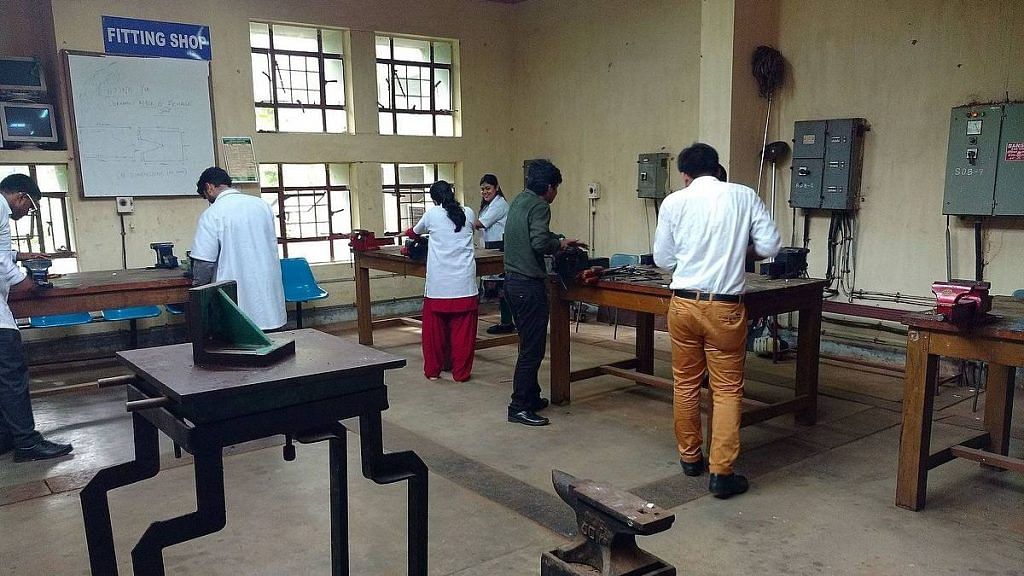New Delhi: After a two-year ban on opening of new engineering colleges, the All India Council for Technical Education (AICTE) is exploring whether they can authorise new colleges from 2022, ThePrint has learnt.
This comes in the midst of a slump in engineering seats — at just over 23 lakh, engineering seats in India are down to a 10-year low in 2021, against an uptick in management seats.
Officials in AICTE said a review of the ban was due, irrespective of the low numbers of engineering seats.
According to AICTE sources, the technical education body has approached the B.V.R. Mohan Reddy committee, which had in 2019 advised the council to stop approving new engineering colleges and adding more seats. The council has asked the panel if they can start approving new engineering colleges again, the sources said.
AICTE Chairman Anil Sahasrabudhe confirmed to ThePrint that the council has reached the Reddy committee and wants to know if they can lift the ban. “We have reached out to the Reddy committee recently because it has been two years and we want to know what to do next,” Sahasrabudhe said.
In 2018, a committee of experts was constituted under B.V.R. Mohan Reddy, Chairman of the IIT-Hyderabad Board of Governors, to look at ways to overhaul engineering education.
In its 2019 report, the committee said more seats in traditional areas of engineering, like mechanical, civil and others, should not be approved. The panel, however, said the council can approve new seats in emerging areas like artificial intelligence (AI), machine learning and robotics.
The changes were put in place because, over the years, many engineering seats were lying vacant, while new colleges were being approved by the council at the same time.
For example, over 17 lakh engineering seats across colleges were not filled in the 2017-18 academic year, but the AICTE was considering over 800 applications for new colleges.
Also read: Engineering seats in India hit 10-year low, while management seats continue to grow
Assessment of availability, demand
According to sources, one meeting with the committee members has already taken place and another one is due.
The panel has asked the AICTE to assess the number of available seats, and the demand for them (as shown by new admissions), and tell them if there is a need for revoking the ban. The committee has also asked the council for the number of seats added in emerging areas like AI, robotics and others in the past two years, to see if there was progress there.
In its 2019 report, the Reddy committee had found that there was 40 per cent occupancy in seats in traditional engineering fields as opposed to 60 per cent in areas like aerospace engineering and mechatronics. It therefore told the council to permit addition of new seats only in emerging areas.
Following the Reddy committee’s suggestions, the council has time and again pushed colleges to come up with courses in emerging areas like AI and robotics.
(Edited by Saikat Niyogi)
Also read: Why IIT panel wants doctors to teach in engineering colleges & engineers in medical colleges
